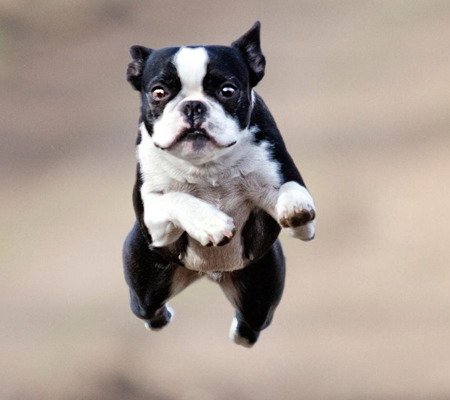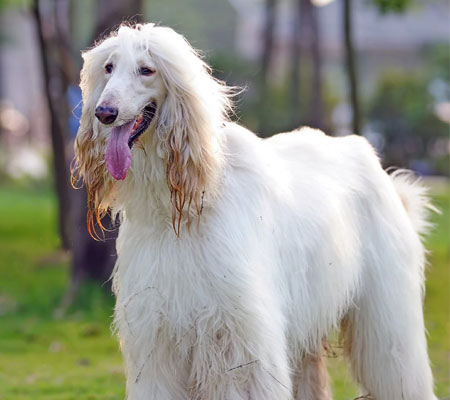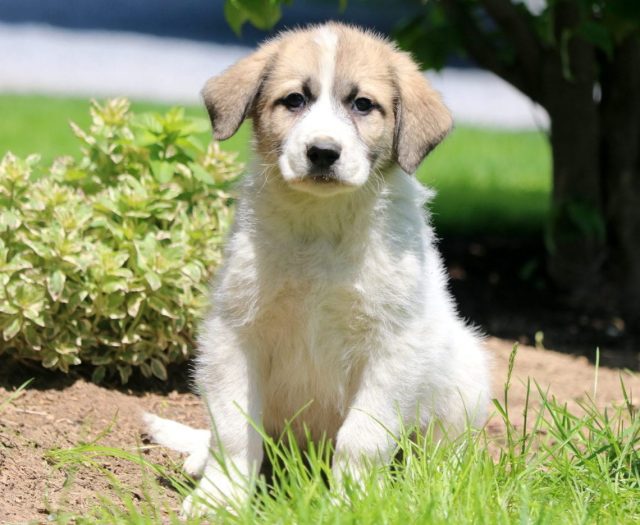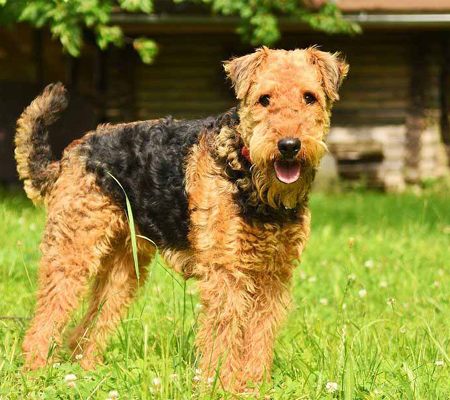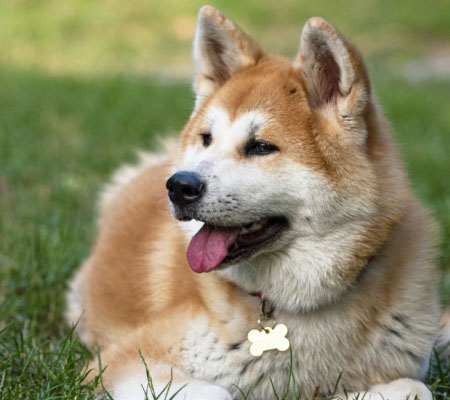Since its inception a little more than a century
ago, the Boston Terrier has been a popular dog. Originally bred as fighting
dogs, they've evolved into kind, devoted companions with tuxedo-like patterns
that have given them the moniker "American Gentleman."Even though
they are purebred canines, they may end up in shelters or rescue organisations.
Keep in mind to adopt! If you want to bring a dog home, don't go shopping.
Boston Terriers are loving dogs who get along
with everyone in the family and can live in almost any type of home, even apartments.
These rambunctious pups, on the other hand, require a lot of activity. You'll
have an adoring and devoted best friend if you can offer your dog enough of
love and exercise.
Boston Terrier Highlights
Breed Size
Small
Nature
Playful, Friendly
Energy Level
Active
Intelligence
High
Barking Level
When Necessary
Coat Length
Short
Breed Group
Terrier
Droll Amount
Medium
Good with
Familes, Children, Dog
Feed Level
Medium, High
Colour Type
Black,brown / chocolate / liver,red,blue,white
Other Facts
Easy to train,easy to groom,prone to health issues,high potential for weight gain,good for first-time pet owners.
Dog History
Although everyone accepts that the Boston Terrier
was created in Boston, Massachusetts in the late 1800s, there are many
different theories regarding how the breed came to be.
According to legend, affluent families' coachmen
created the breed by combining Bulldogs with the now-extinct English White
Terrier to produce a new dog-fighting breed. According to another storey, in
1865, a Bostonian named Robert C. Hooper bought from England a Bulldog/English
Terrier hybrid named Judge because he resembled him of a dog he had as a boy.
According to another narrative, Hooper bought Judge in 1870 from another
Bostonian, William O'Brian.
While we may never know which version is real,
the truth remains that there was a dog named Judge who gave rise to the Boston
Terrier breed we know today.
Judge was "a well-built, high-stationed
dog" weighing around 32 pounds, according to The Complete Dog Book. He had
a dark brindle coat and a square, blocky head with a white blaze on his face.
Judge was only bred once, which is incredible.
One puppy, a boy named Well's Eph, was born from a marriage with a 20-pound
white dog named Burnett's Gyp (or Kate) who belonged to Edward Burnett of
Southboro, Massachusetts.
Judge and Kate's son wasn't very handsome, but he
possessed other qualities that Hooper and his friends valued, so he was
extensively bred.
Tobin's Kate, a female that weighed just 20
pounds and had a small head, was one of his matings. She had a golden brindle
colouring and a three-quarter straight tail. Their pups are likely to have been
mated with one or more French Bulldogs to create the Boston Terrier we know
today.
But they weren't always known as Boston Terriers.
Bullet heads, round-headed bull-and-terriers, American terriers, and Boston
bulldogs were among the many names given to Eph's progeny.
The American Bull Terrier Club was founded in
1889 by roughly 30 Boston Bull Terrier owners who dubbed their dogs Round Heads
or Bull Terriers. Bull Terrier and Bulldog enthusiasts were outraged by the
moniker. The Boston Bull Terrier fanciers decided that caution was the better
part of valour and changed the name of their group to the Boston Terrier Club,
in honour of the breed's birthplace, because the Bulldog contingent had a lot
of power with the American Kennel Club (AKC) at the time. Boston Bulls became a
popular nickname for the breed.
The American Kennel Club (AKC) first recognised
the breed in 1893. The Boston Terrier was one of the earliest non-sporting dogs
bred in the United States, and it was the first of the AKC's ten
made-in-America breeds.
The colour and markings of the breed weren't
thought to be very essential in the beginning. Furthermore, while the dogs
being produced fit the club's standards, there was a lot of variation within
the breed. The Boston Terrier as we know it today was produced after years of
meticulous inbreeding to establish the type. The particular patterns and colour
of the breed were meticulously incorporated into the standard in the 1900s,
making them an essential characteristic of the breed.
Boston Terriers soon gained popularity in the
United States. Boston Terriers were the most popular breed in the United States
in 1915, and they remained in the top 10 until the 1960s, topping the list
again in 1920 and 1930. A total of 60 Bostons were entered at a single
all-breed exhibition in 1918.
Boston Terriers were admired by Hollywood stars
and actresses. Pola Negri, Rudolph Valentino's sweetheart, is said to have
taken her Boston Terrier, Patsy, everywhere with her, including restaurants and
bars. She rushed out of one of the restaurants after they refused to let her in
with her pet dog "There will be no Patsy and no Pola without Patsy.
Goodbye for all time!" Louella Parsons, a prominent gossip journalist,
also had a Boston Terrier called Patsy.
The Boston Terrier was chosen as the United
States' bicentennial dog in 1976. He was proclaimed the official state dog of
Massachusetts three years later. Boston University's mascot is Rhett the Boston
Terrier. The Boston Terrier is also the mascot of Wofford College in South
Carolina and Redlands High School in California.
14-18 inch 8-14 kg 10-13 year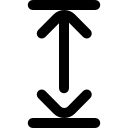
Height

Weight

Life Span
Health and Care
Boston Terriers are typically healthy, however
they are susceptible to some health issues, as are all breeds. Although not all
Boston Terriers will contract any or all of these illnesses, it's vital to be
aware of them if you're thinking about getting one.
Find a reliable breeder who will show you health
clearances for both your dog's parents if you're buying a puppy. Health
clearances demonstrate that a dog has been checked for and cleared of a certain
disease.
Health clearances from the Orthopedic Foundation
for Animals (OFA) for hip dysplasia (with a score of fair or better), elbow
dysplasia, hypothyroidism, and von Willebrand's disease; thrombopathia from
Auburn University; and normal eyes from the Canine Eye Registry Foundation
(CERF) are all expected in Boston Terriers. You can visit the OFA website for
health clearances (offa.org).
- Cataracts
- Patellar Luxation
- Heart murmurs
- Deafness
- Megaesophagus
- Reverse sneezing
Care
The Boston Terrier is a lively dog, yet he
doesn't require a lot of exercise. He's a good choice for apartment residents
or those who don't have access to a yard because he's pretty idle indoors. He
likes going for walks and playing in the yard with you, but he is an indoor dog
who should never be left outside. Always remember that Boston Terriers don't do
well in extremes of heat or cold.
Because Bostons are sensitive to tone of voice
and punishment might cause them to shut down, training should be low-key and
motivating. Use positive reinforcement strategies like food rewards, praise,
and games.
Dog Breed Care Tips and
Important Instructions
The soft, silky coats of Boston terriers make
them simpler to maintain than many other breeds since they shed less. Garner
recommends brushing them at least once a week. To assist gather their loose
hairs, you can use a soft-bristle brush or a rubber grooming mitt. They, like
other dogs, need to have their nails trimmed on a regular basis; long nails may
be difficult to walk on and can become infected. They also smell better after a
bath.
Boston terriers require varying amounts of
exercise, but two daily walks should enough, according to Garner. Boston
terriers with a lot of energy may need to play and run even more to burn it
off.These dogs are unlikely to run about the backyard on their own; they want
you to be their companion, tossing them a ball or tugging at their tails. Make
sure you have a fenced-in area where you may play with your dog.
In addition to physical activity, Bostonians,
according to Moyano, require mental stimulation. Let the food puzzles begin!
Garner thinks it's critical to teach Boston
terriers so they acquire appropriate manners and are socialised with humans and
other dogs since their fun temperament may veer towards boisterousness.
Positive reinforcement training, like with any dog, is the key to a joyful (and
productive!) training session. Bostons are eager to please, extremely
intelligent, and thrive on praise when being taught. For these sensitive but
extroverted dogs, treats and head pats are a winning combination.
Feeding
0.5 to 1.5 cups of high-quality dry food each
day, split into two meals, is the recommended daily quantity.
The amount of food your adult dog consumes is
determined by his size, age, build, metabolism, and degree of activity. Dogs,
like people, are unique individuals that require different amounts of food. It
practically goes without saying that a dog that is very active will require
more than a dog who is sedentary. The type of dog food you buy makes a
difference as well; the better the dog food, the more it will nourish your dog
and the less you'll have to shake into his bowl.
Because Boston Terriers may be gluttons for
punishment when it comes to food, keep an eye on their weight and make sure
they don't get obese. Flatulence can also be a problem for them, which could be
connected to their nutrition. Reduce the possibility of this condition by
feeding a high-quality diet.
Fun Facts
- In 1979, the Boston terrier was designated as
Massachusetts' official state dog.
- The mascot of Boston University is a Boston
terrier. A dog defeated a moose in a student vote over a century ago to
represent the institution.
- The Guinness World Record for "dog with the
widest eyes" was awarded to Bruschi, a black-and-white Boston terrier. His
pupils were 28.8 mm across and his eyes were 28.8 mm in diameter.
- Boston terriers are the first non-sporting breed
to be bred in the United States.
Home Training Tips and General
Information
- Love is all a dog requires.
- One of the most prevalent dog claims I hear as a
canine behavioural consultant is that all a dog requires is love. Is that
correct or incorrect? You might be surprised by my response!
- There are four things you must do correctly.
- It doesn't have to be difficult to train your
Boston Terrier puppy. You can influence your puppy's behaviour and make
training easier right now by doing four simple things.
- Teach Your Boston Terrier To Respect You I
utilise and suggest "Respect Training" as a dog training approach for
Boston Terriers. When you say "No," a dog who respects you will stop
what he's doing and do what you say. Teaching your dog to respect you entails
engaging in certain interactions with him that promote respect.
- What Should You Teach? (and When)
- Dog training begins the minute your puppy arrives
at your home. If you utilise the incorrect training approach, your puppy will
begin to make decisions about how he wants you to fit into his life, which will
lead to conflict and behavioural issues. You must respond appropriately to
anything your puppy does, or he will learn the incorrect things. Here's how I
propose teaching your Boston Terrier puppy (what to teach, when to teach it).
- Teach The Correct Words In The Correct Context
- My Boston Terrier training approach includes
teaching certain phrases in precise ways so that your dog not only learns the
words but also develops the respectful attitude that makes him want to obey
you. Teach your dog to comprehend what you're saying by teaching him words.
Teach those terms in the proper context, and he will follow your instructions.
- Your Boston Terrier's Housebreaking
- There are two essentials to breaking into a
house. There are only two, but you must get them both correct. And I don't mean
50 percent correct; I mean 100 percent correct. Otherwise, you'll wind up with
a dog that is only 50% toilet trained, which no one wants. So there you have it
— your two housebreaking keys.
- Getting to Know Your Boston Terrier
- Socialization is teaching your Boston Terrier how
to interact with strangers and other animals in a pleasant manner.
FAQS
|
What do I need to know about Boston Terriers before obtaining one? |
|
Boston Terriers are loving dogs who get along with everyone in the family
and can live in almost any type of home, even apartments. These rambunctious
pups, on the other hand, require a lot of activity. You'll have an adoring
and devoted best friend if you can offer your dog enough of love and
exercise. |
|
Is it true that a Boston Terrier requires a lot of upkeep? |
|
Boston terriers aren't particularly high-maintenance dogs in general.
Boston terriers have a short-haired, smooth coat that can be readily handled
with a firm bristle brush; they don't need to be bathed on a regular basis. |
|
Is it okay to leave Boston Terriers alone? |
|
Boston Terriers are loyal friends that love company, but if a safe
space—such as a dogproof room or a crate—is given, they may be left home
alone for four to eight hours. It can be tough to housetrain them, and leaving
them alone before they've learnt to retain their bladder might exacerbate the
problem. |
|
Is it tough to train Boston Terriers? |
|
Bostons are extremely clever, which makes them simple to teach. They
might be tough to housebreak, but with persistent training, they can avoid
dominance and fighting with other dogs. Because Bostons are sensitive to the
tone of a person's voice, keep rigorous yet kind training in mind. |
|
How can I know whether my Boston Terrier is content? |
|
According to this study, if your Boston Terrier's tail is wagging to the
right, they are likely happy, peaceful, and at ease. If your dog is wagging
its tail to the left, he or she may be stressed or anxious. |
|
Is it true that Boston Terriers enjoy cuddling? |
|
Snuggling and snuggling are two of the Boston Terrier's favourite
activities. In a little room that feels like a den, the Boston Terrier feels
safe and protected. His natural burrowing activity indicates that he feels
safe and secure in a little enclosed space. |
Boston Terrier Unique Name
| Male Name | Female Name |
|---|---|
| Barkley | Aspen |
| Buster | Baxter |
| Chester | Blossom |
| Fisher | Ellie |
| Gizmo | Fiona |
| King | Gabby |
| Lucky | Harley |
| Nelson | Hope |
| Oakley | Lena |
| Rambo | Mimi |
| Rocco | Nell |
| Rocky | Phoebe |
| Rosco | Sissy |
| Sawyer | Sydney |
| Sparky | Abbie |
| Wally | Bridgett |
| Zeus | Cha Cha |
| Turbo | Kitty |
| Twinkle | Lacey |
| Wiggles | Vava |

